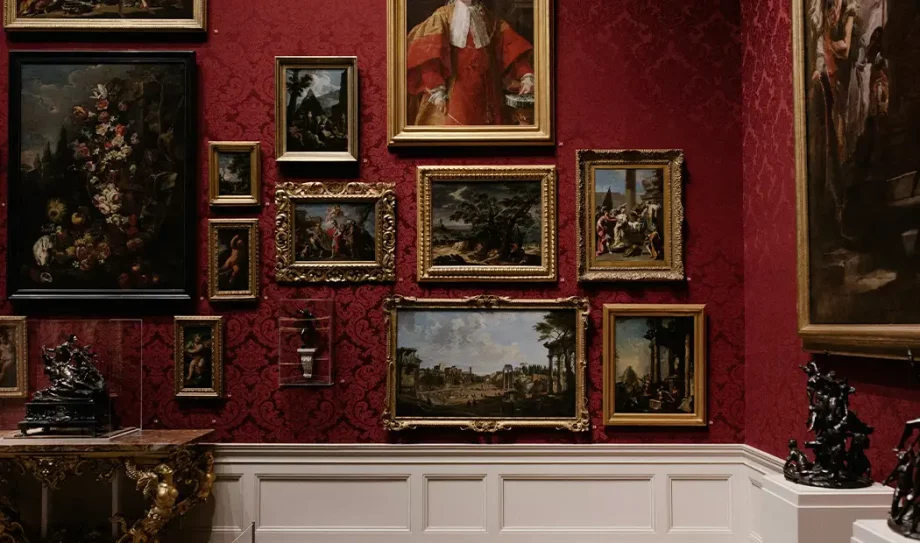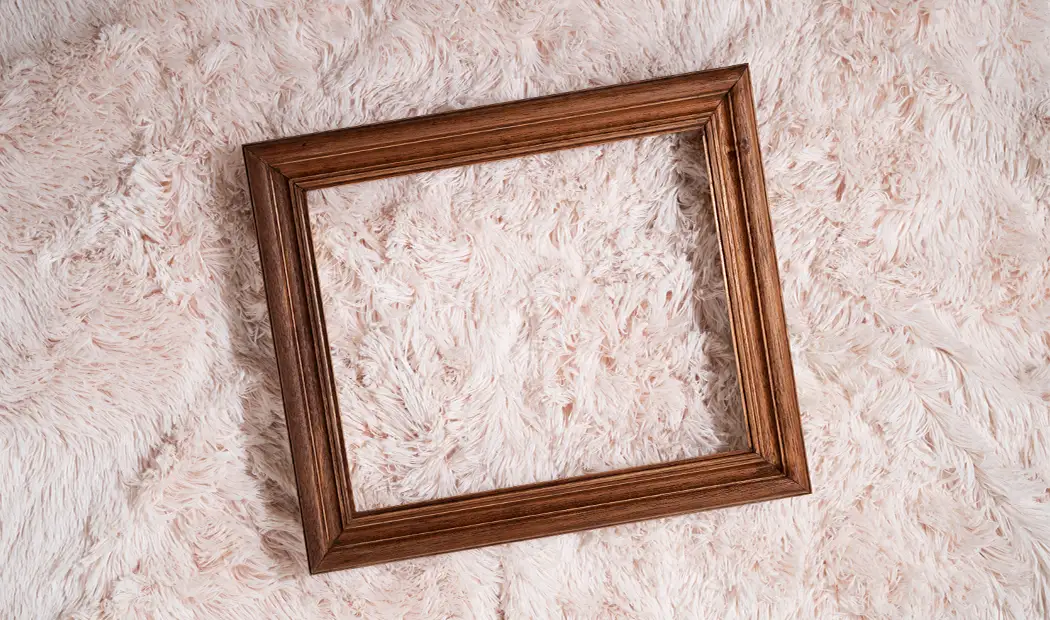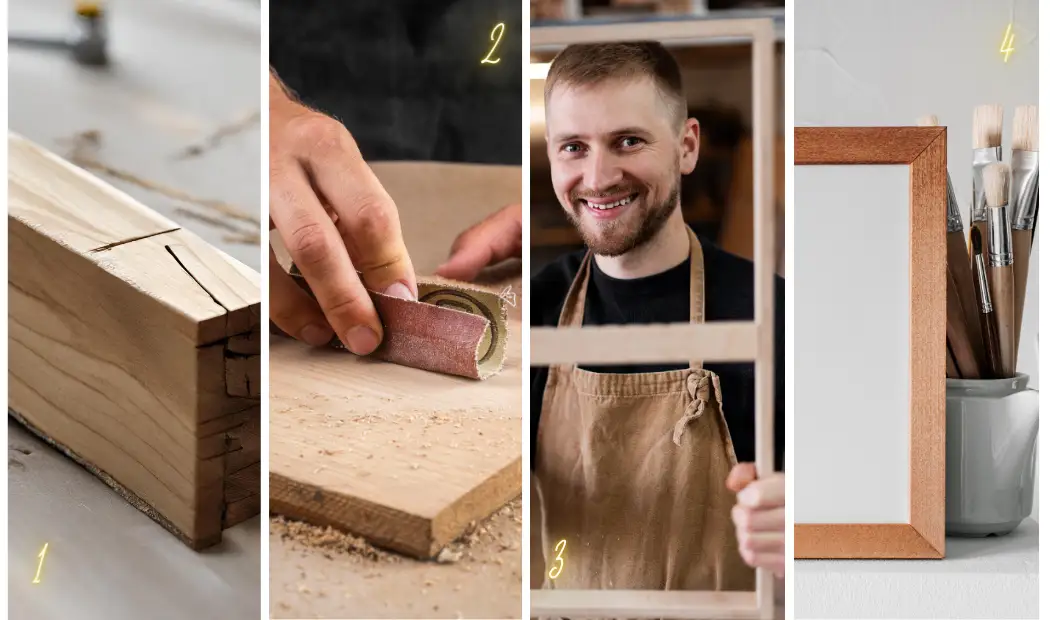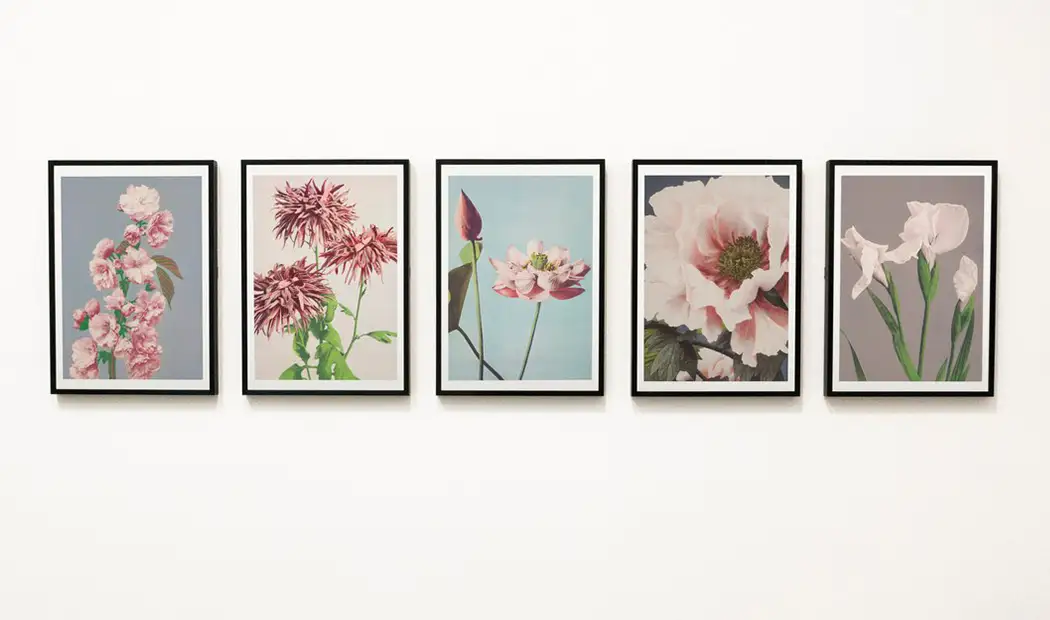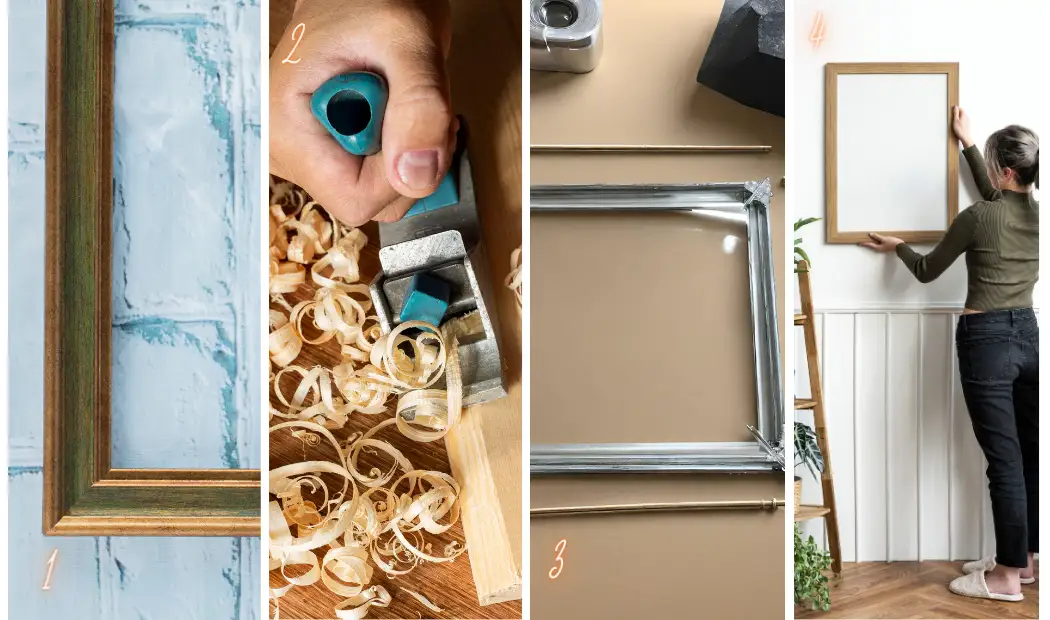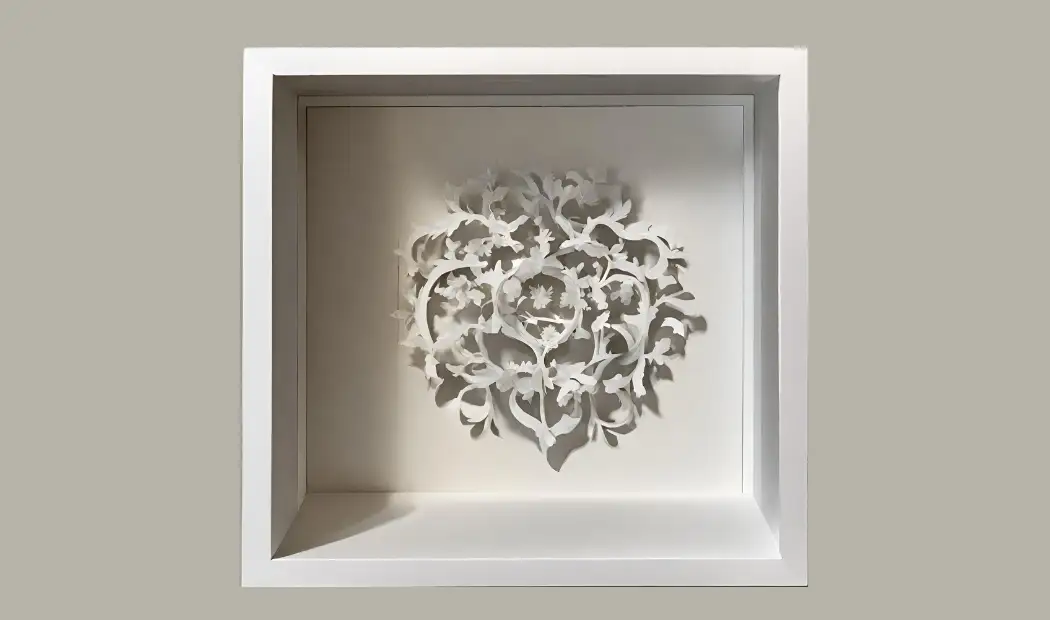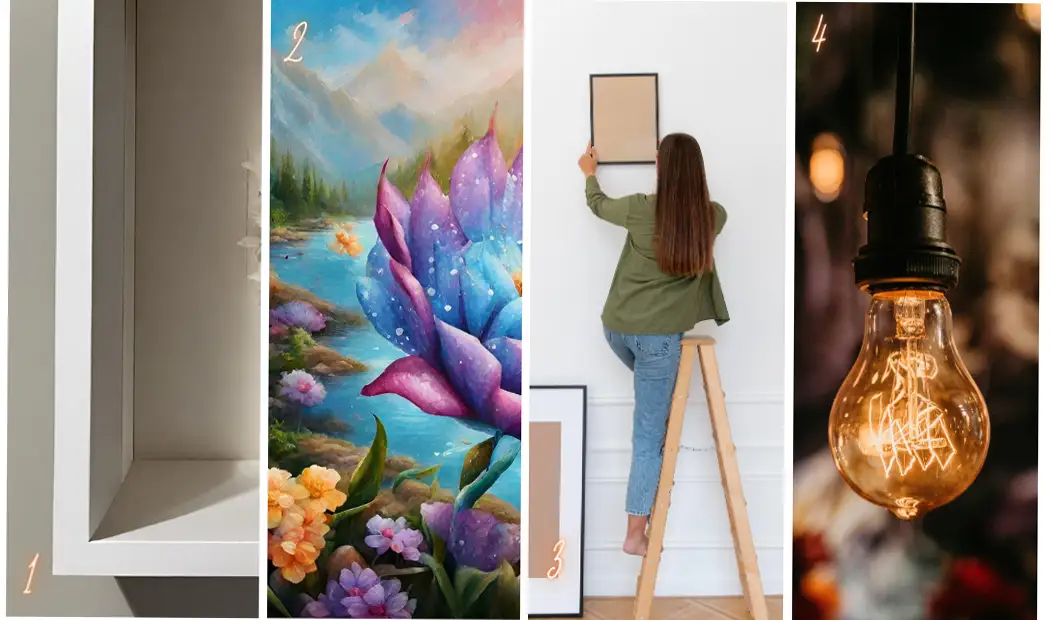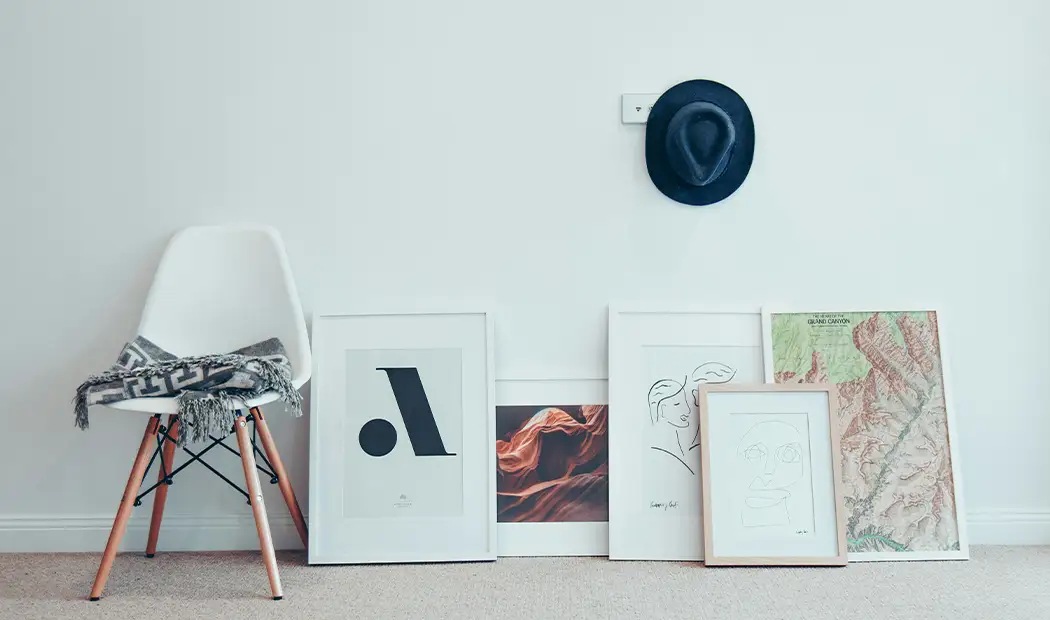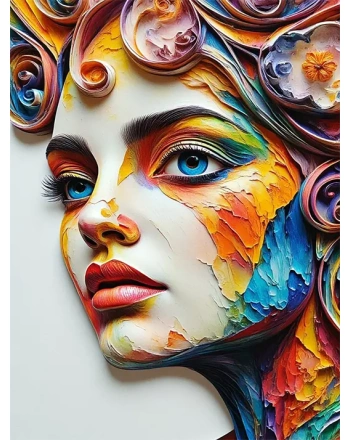The difference between a painting and a framed painting is similar to wearing vs styling. A painting frame adds a final touch that is equivalent to styling your artwork. This step not only enhances the visual appeal of the painting but also provides protection and longevity. So, when it comes to your diamond art, diamond painting frames play a crucial role in transforming it into a stunning art.
Dive into our guide and learn about the various kinds of diamond painting frames suitable for your artwork, explore the steps of how to frame a diamond painting and last but not the least how to install your diamond painting with a frame. Explore step by step instructions and learn the techniques of installing the right frame that can give your diamond painting a gallery worthy status.
Types of diamond painting frames
- Traditional Wooden
- Floating Frames
- Shadow Boxes
- Clip Frames
- Stretched Canvas Frame
- Decorative Frames
- Collage Frames
1. Traditional wooden frames
Such frames are made from various kind of wood such as oak, cherry or walnut. It can be used to display artworks, photographs and mirrors. These diamond painting frames provide a natural warmth and beauty to your diamond painting masterpiece. Due to its customized finish, it adds a timeless elegance to your finished diamond painting.
Why choose traditional wooden frames?
- The traditional wooden frames give a classic look to your artwork.
- Such frames come in various styles and wood types providing versatility to match preferences.
- The material of the wooden frames for paintings is durable and provides a long lasting support.
- The frame can fit the specific dimensions of your artwork while complimenting the visual appeal.
- Wooden frames can create a cozy and inviting atmosphere, making them suitable for various spaces within your home.
How to frame a diamond painting with traditional wooden frame?
Things You Need:
Four pieces of wood, Miter saw or handsaw, Wood glue, Clamps, Wood screws or nails, Sandpaper, Paint, Sealant
Steps to create and install a wood frame for canvas painting:
- Measure and cut the wood: Measure the diamond painting canvas and cut the wood pieces according to the diamond painting dimension. Then use a saw to create 45 degree angles at the corners for professional and polished finish.
- Sand the edges: Smooth the cut edges and corners of the wooden pieces with sandpaper. This step will ensure not only give the frame a finished look but also remove the splinters. Sanding the edges will increase the frame’s aesthetics.
- Assemble the frame: In order to assemble the wooden frame, apply wood glue to the edges and then carefully join the wooden pieces. Secure the pieces together using sturdy clamps, ensuring a snug and precise fit. After allowing sufficient time for the glue to dry thoroughly, firmly fasten them in place using either screws or nails.
- Paint and varnish: Apply paint on the wooden frame to get a finished look. Allow the paint to fully dry before carefully applying a sealant. This step not only protects the wood but also helps to extend its lifespan, particularly crucial for framed artwork that may be exposed to moisture or sunlight.
- Remove the Frame Backing: Check the frame whether it has a backing that secure the interior of the frame. It may be securely attached with screws, nails, clips, or other highly durable fastening mechanisms for long-lasting stability and support. Lay down the frame on a well lit place and carefully remove the back of the frame with appropriate tools. Once the fasteners are removed, gently lift the frame’s back.
- Position the Diamond Painting: Place the diamond painting canvas within the frame, ensuring it is centered both horizontally and vertically. Take your time to align the edges of the canvas with the inner edges of the frame for a symmetrical presentation. In case the border of the canvas is visible, make it even for a balanced and pleasing look
- Trim Excess Canvas: Inspect the frame for excess canvas along the edges of the frame. Use a sharp knife or scissors to carefully trim away the extra canvas ensuring that the cut aligns seamlessly with the frame’s inner edges. Locate the frame’s backing and attach the backing carefully. Make sure the canvas is unmoved and is entirely covered with the back surface.
- Attach Hanging Hardware: Once the painting is framed, carefully attach sawtooth hangers, d-rings or wire to the back of the frame for hanging. Ensure that each piece of hardware is securely fastened and positioned strategically to achieve balanced and stable hanging. Use suitable wall anchors to mount your framed diamond painting on the wall and make adjustments if necessary.
2. Floating Frames
Floating frames add a contemporary and stylish touch to the presentation of diamond paintings, infusing them with an air of depth, luxury, and refinement. The intentional space between the canvas and the frame serves to emphasize the intricate sparkle and brilliance of the artwork, elevating its visual allure even further.
Why choose floating frames?
- The frame creates the illusion that the artwork is “floating” within the frame.
- This frame allows the canvas to be displayed without matting or framing elements.
- Such frames compliment a wide range of art styles, from paintings and photographs to canvas prints.
- The design of floating frames often involves clips or brackets that secure the artwork in place.
How to frame a diamond painting with floating frame?
Things You Need:
Wood or metal frame molding, Plexiglass, Clips or brackets, Screwdriver, Screws, Level, Hanging hardware (D-rings, sawtooth hangers, or wire)
Steps to create and install a floating frame for canvas painting:
- Choose Frame Molding: Choose frame molding as per the style and size of your painting with diamond. This type of frame offers a simple and straightforward design also providing us the flexibility to add the finish that suits your individual taste and style.
- Cut Frame Pieces: Trim the frame molding as per the size of your artwork using a miter saw or hand saw. Make sure that the corners are cut at exact 45 degree angles to achieve a professional look.
- Assemble the Frame: Put the fame together by carefully joining each of the cut pieces together ensuring that they fit appropriately. Apply wood glue to provide stability and support, also be mindful of the metal brackets that are included with some floating frames.
- Attach Plexiglass or Glass: Secure the plexiglass or glass to the back of the diamond painting frame using clips or brackets, ensuring a precise and snug fit that aligns perfectly with the dimensions of the floating frame. This step is important to protect the diamond painting and ensure a professional finish. This will help in enhancing the mesmerizing floating effect.
- Secure Artwork: Attach clips or brackets to the back of the frame, ensuring they are designed specifically to securely hold the artwork in place while remaining discreet and hidden from the front view. This will not only provide stability but also maintain a seamless appearance when viewing the diamond painting masterpiece from the front.
- Attach Hanging Hardware: When you are installing the chosen hanging hardware on the wall, it is important to carefully consider the specific needs of the frame design and its weight. Take your time to ensure that not only is the hardware level, but also securely anchored to the wall for long-lasting stability. It’s crucial for ensuring that your artwork remains safely and attractively displayed.
- Hang the Frame: Hang the floating frame on the carefully installed hardware, taking great care to ensure that it is perfectly level and well-aligned. Make any necessary micro adjustments to achieve a flawlessly straight and impeccably presented display, painstakingly ensuring that every minute detail contributes to an elegant and refined presentation.
3. Shadow Box Frame
Shadow box frames not only provide a stylish and protective display for cherished items but also offer the opportunity to showcase intricate pieces such as diamond paintings with depth and creativity. The unique design of these frames allows for artistic arrangements that add dimension, creating an engaging storytelling aspect to your display.
Why choose shadow boxes?
- Shadow boxes are excellent for preserving and protecting diamond painting from dust, light and damage.
- Such boxes provide depth and dimension to your diamond art.
- Shadow boxes are ideal for creating themed displays.
- The protective glass of shadow boxes shields the painting from moisture and accidental touches.
How to frame a diamond painting with shadow box?
Things You Need:
Shadow box frame, cardboard, glue, pins, double sided tape, decorative paper, fabric, paint, d-rings, wire, hangers
Steps to create and install a shadow box:
- Select a Shadow Box: When selecting a shadow box, it is vital to thoroughly consider how its size and design will enhance the presentation of your items. It is crucial to assess the depth of the box to ensure that it can effectively showcase the diamond painting.
- Arrange Items: Plan the layout of your items within the shadow box, taking into consideration their size, shape, color, and texture. Experiment with different arrangements until you find a design that matches your preferences.
- Secure Items: When securing your items, utilize high-quality adhesive or mounting materials to ensure they are firmly fastened in place. Take time to thoughtfully arrange each item inside the shadow box and close the box gently to preserve your careful work.
- Choose the Placement: Selecting the perfect location on your wall to hang the shadow box involves careful consideration of optimal viewing at eye level. Take a moment to assess different spots before using a pencil to mark both the top and bottom edges of the shadow box on the wall. This simple step will provide you with a visual guide for placement before moving forward with installation.
- Install Hanging Hardware: When choosing the hanging hardware for a shadow box, it’s essential to carefully evaluate the weight and dimensions of the piece. This means considering options like D-rings for stable support, sawtooth hangers for a secure hold, or wire for versatile installation. Once you’ve identified the positions on the wall, proceed with installing screws or nails and securely hanging your shadow box in place.
- Adjust as Needed: Step back and take a moment to carefully assess the placement of the shadow box. Consider its positioning from different angles, ensuring it is perfectly level and precisely positioned to meet your exact satisfaction. Take note of how natural or artificial light interacts with the shadow box, as this can affect its overall impact in the room.
Other Frames For Diamond Painting
4. Clip Frames:
A clip frame for diamond painting utilizes small clips strategically placed to secure the delicate artwork in place, offering a modern and sleek aesthetic without the need for a bulky traditional frame. This minimalist approach allows the beauty of the diamond painting to take center stage while still providing a secure display option.
5. Stretched Canvas Frame:
These frames for diamond paintings are crafted to not only stretch and display the canvas-based artwork, but also elevate it with a sophisticated gallery-style appearance. They serve as the ideal choice for showcasing rolled canvas masterpieces, adding an exquisite touch to any art collection.
6. Decorative Frames:
When selecting frames for your diamond painting display, consider choosing ones with decorative elements like ornate patterns or intricate designs to enhance the overall flair and style of your artwork.
7. Collage Frames:
Collage frames for diamond painting offer a way to showcase multiple smaller pieces of artwork, allowing for a visually stimulating display that highlights the intricacies of each individual diamond painting.
Considerations When Buying a Diamond Painting Frame
In case you can not create a wooden frame yourself, you can always buy a wooden frame for your diamond painting artwork or seek help from a professional. Make sure the frame matches the size and style of your diamond painting. Check the depth of the frame to ensure that it encapsulates the entire canvas without pressing the diamonds. The frame should complement the existing décor and color scheme of the space where you will display it.
Summing Up
Transform your diamond painting into a cherished piece of personalized art by choosing the perfect frame. Whether you prefer the classic elegance of a wooden frame or the contemporary look of a floating one, mastering the art of framing adds sophistication and allows you to showcase your creativity in presenting your beloved diamond painting with finesse and individuality.
So don’t hold back – let your imagination run wild, explore various framing options, and elevate your diamond painting to a whole new level of aesthetic delight. After all, how to frame a diamond painting is the finishing flourish that turns your dazzling diamonds into a timeless gem.
Check out Art of Diamond Painting for the latest diamond paintings!
-
$19 – $65
Humming bird painting
-
$19 – $65
Colorful butterfly
-
$19 – $65
Colorful woman

